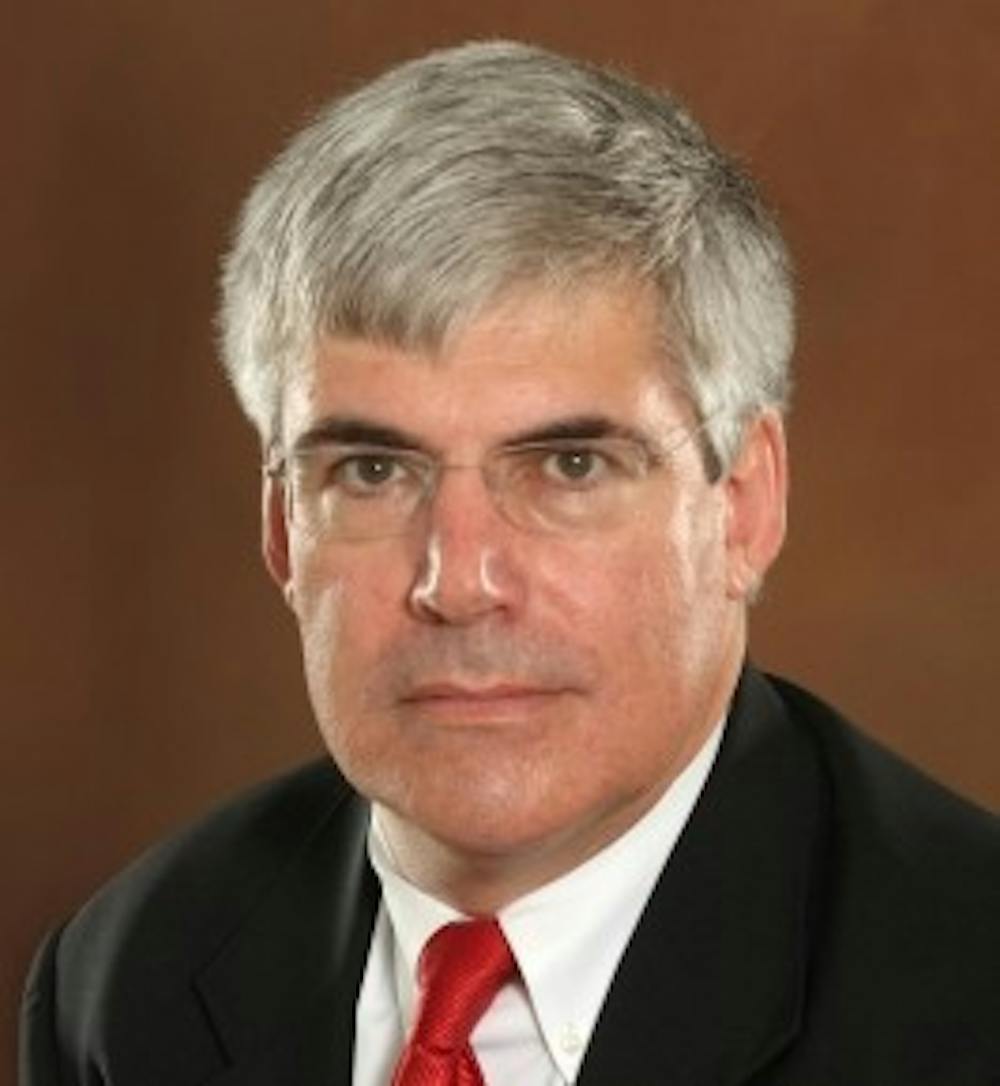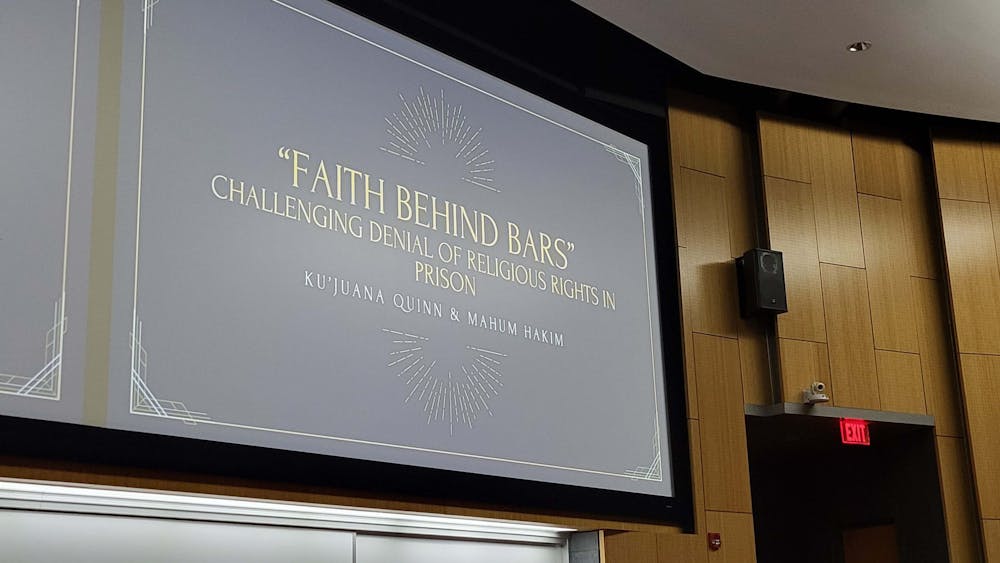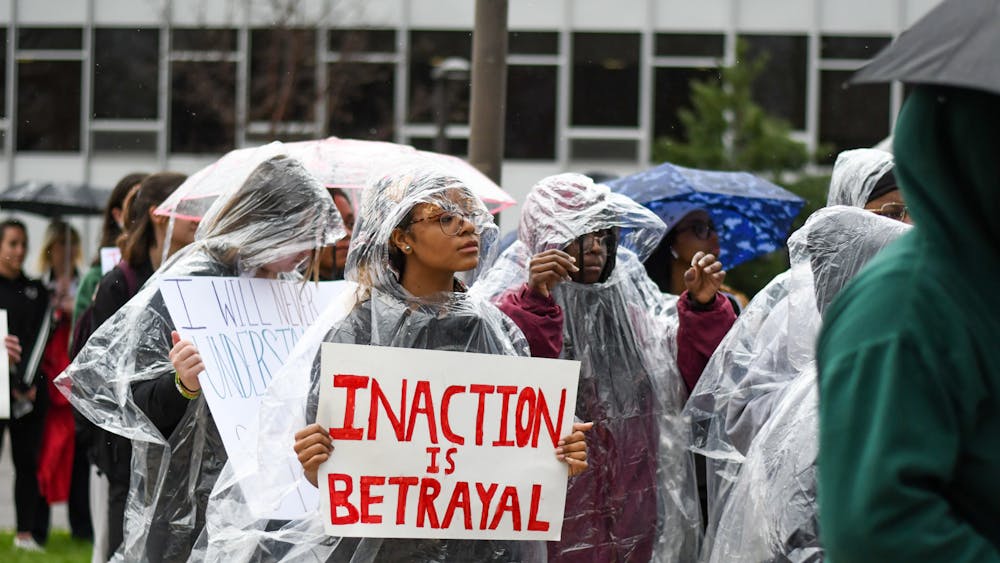CMU academic reorganization reports could hit Ross' desk soon
Following the release of final committee reports on Mach 26, the Academic Organizational Review is moving along at a steady pace, said Ian Davison, senior vice provost for the Academic Reorganization Initiative.
Davison said the three committees — Departments and Colleges, Academic Support and Responsibility Centered Management — are almost done with their reports. They will be sent to President George Ross upon completion.
The committees collected proposals from the campus community until November, then began reviewing the proposals to create recommendations. Preliminary recommendations were released Jan. 30.
Following the initial release were feedback sessions that took place Feb. 7-8. The sessions were facilitated by Carol Cartwright, former president of Kent State University and Bowling Green State University. The sessions provided students, faculty and staff to voice their opinions about certain proposals and offer alternatives.
Since the feedback sessions, the committees have released updated reports, gathered more feedback and are close to finalizing their reports.
Committee III, Responsibility Centered Management, updated its recommendations Feb. 20. Davison said its final revision should be released in the next week or so.
Committee II, Academic Support, released its finalized report March 26. The recommendations will be sent to Ross for him to make final revisions.
Committee I, Departments and Colleges, released updated recommendations Feb. 27.
Since then, affected departments and colleges have held votes to approve the proposals.
All versions of the recommendations are available to view on the AOR webpage.
Committee I – Departments and Colleges
Committee I was responsible for reviewing the organization of departments and programs in each college.
Departments voted before March 12 and approved all recommendations. Colleges finished voting March 27 and also passed all recommendations. Now, is a two-week objection period for the recommendations. If someone objects to a recommendation, Academic Senate will vote on it April 10.
“Objections can be made by the president, the provost, a dean or a department,” Davison said. “A student couldn’t object and neither could an individual faculty member.”
If there are no objections, the report will go to Ross, who will present his final recommendations to the CMU Board of Trustees in June.
All recommendations passed. The voting results are as follows:
College of Communication and Fine Arts:
· Divide the Department of Communication and Dramatic Arts into a Department of Communication and a Department of Dance and Theater. Departments voted 28-1, College voted 78-9.
· Change College of Communication and Fine Arts name to College of Arts and Media. College voted 52-33.
College of Education and Human Services:
· Divide Department of Human Environmental Studies into three departments: Department of Fashion, Interior Design and Merchandising, Department of Human Development and Family Studies, and Department of Food and Nutrition. Departments voted 39-1, College voted 78-2.
· Move Department of Food and Nutrition to the College of Health Professions. Department voted 37-2, College voted 74-6.
· Move Gerontology faculty to the School of Health Sciences in CHP. Department voted 40-0, College voted 76-4.
· Create a Center for Administration and Leadership Studies. College voted 67-11.
College of Humanities and Social and Behavioral Sciences:
· Change CHSBS name to College of Liberal Arts and Social Sciences. College voted 90-21.
College of Health Professions:
· Create a stand-alone Department of Physical Therapy. All other programs will remain in the School of Rehabilitation and Medical Sciences. Department voted 17-5, College voted 43-12.
· Incorporate Gerontology faculty into the School of Health Sciences. Department voted 26-2, College voted 54-3.
· Accept Department of Food and Nutrition. College voted 44-10.
· Accept Department of Food and Nutrition as A. Stand-alone department or B. Division of an existing School. College voted 19 for A and 26 for B. Food and Nutrition will join an existing School in CHP.
College of Science and Engineering:
· Divide the Department of Mathematics into a Department of Mathematics and Department of Statistics, Actuarial and Data Sciences. Department voted 27-5, College voted 88-26.
· Create a Division of Engineering and Informatics which will contain new Department of Statistics, Actuarial and Data Sciences. College voted 69-35.
· Create a Division of Mathematics and Natural Sciences. College voted 65-40.
Regarding other recommendations, which are italicized in the Committee I report, Davison said the committee plans to speak with faculty and departments before making final decisions.
These recommendations will likely be finalized and voted on during Fall 2018 or early Spring 2019, Davison said.
Committee II – Academic Support
The revised recommendations include centralizing student advising, consolidating recruitment efforts and acknowledgement of the problems in the Counseling Center.
The recommendations are as follows:
· Centralize all student advising within the Academic Division and implement mandatory, annual advising.
· Consolidate all university-wide recruitment efforts within Enrollment and Student Services.
· Combine all testing and proctoring into a single unit.
· Create a standing committee to better coordinate the efforts of WCMU and the Academic Division to increase student participation.
· Transfer the resources and responsibility of the Fabiano Botanical Garden to Facilities Management
The committee recommends making advising mandatory for students to ensure students are scheduling correctly and on track to graduate.
Currently, students are only required to meet with an adviser three times in their academic career. The committee suggests requiring new freshmen to meet with an adviser three times their first year (once at orientation and once per semester) and once per year until graduation.
“We know people go off track most often early in their academic career,” Davison said. “We want to frontload the advising support.”
To implement mandatory advising, registration for classes will be conditional on meeting with an adviser.
“For students who know what they want to do and are making good progress, meeting with an adviser might be an email or a quick interaction,” Davison said. “The goal is to make sure the people who need help and support, get it.”
Davison said Committee II’s report is complete, except for the counseling center. The committee isn’t planning to make changes to the current report, but instead, plans to issue a separate report with recommendations for the Counseling Center, once solutions have been introduced.
The committee is still accepting suggestions regarding the Counseling Center. Anyone with information about the Counseling Center is urged to contact Davison or a member of Committee II so the committee can properly assess the problems and create effective solutions.
“We need to think carefully about this,” Davison said. “This is such an important problem, we need to think carefully about it and come up with a solution that is actually the right solution.”
Davison hopes recommendations for the Counseling Center will be complete by the end of the semester but stressed that the committee doesn’t want to rush to a solution without exhausting every alternative.
No recent changes have been made to Committee III’s recommendations or the provost’s plan to reorganize the academic division.
Davison said all committees are still accepting feedback. The campus community can provide feedback by contacting Davison or a committee member or by completing an anonymous survey on the AOR website.





